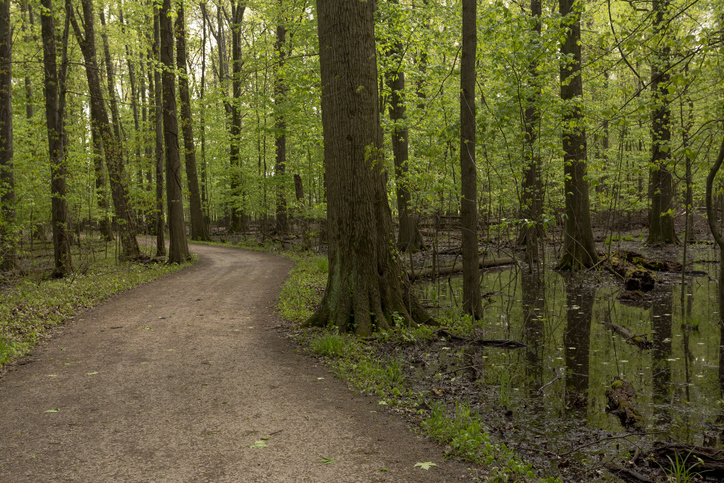Thank You for Not Shoveling
January 15, 2018
The bus stop presented a Sophie’s choice of sorts: Stand in a 3-foot-high snowbank or stand in the middle of the road.
The snowbank looked cold and uninviting, but the rush of morning traffic looked even less inviting. Or maybe just inviting untimely death by car.
Snowbank it was.
As I waited, half submerged in the snow, for the bus to come, I considered myself lucky because 1) I have a great pair of winter boots. 2) I ride the bus by choice and not out of necessity.
I could easily have avoided any discomfort and personal danger simply by my walking back to the house, getting in the car and joining the many in traffic racing past this very bus stop.
But many who ride the bus don’t have that choice.
On a certain level, uncleared bus stops send an implicit message to bus riders that they don’t matter, and they certainly don’t matter as much as those driving the cars, for whom the streets are plowed right away.
With the exception of RIPTA’s transit hubs, the task of keeping the roughly 4,000 bus stops like mine clear of snow falls on municipalities, property owners and businesses. I can give my adopted town of Portsmouth and the bus stop’s adjacent property owners an “F” for snow removal. Nearly five days after Winter Storm Grayson dropped a foot of snow on Aquidneck Island, my stop, which is across from the Portsmouth Multi-Purpose Senior Center on Bristol Ferry Road, was still buried in snow.
As I waited for the bus, I contemplated shoveling out my stop myself and throwing the snow back onto the road, where it would surely get more attention from the Department of Public Works and passing motorists.
Then a radical idea presented itself. Let’s give every elected official in the state a RIPTA bus pass and require them to ride the bus for a month.
Then maybe they’d feel the urgency of uncleared bus stops and sidewalks, and correct some of the other less-than-charming characteristics of the RIPTA bus system.
After all, when a Providence City Council member was struck by a car on Atwell’s Avenue in 2011, suddenly speed bumps appeared on that street. The biggest speed bump of all — and I’m talking literally — is the one atop Smith Hill by the Statehouse.
Who knows. If lawmakers had to ride the bus, maybe then buses would run more frequently, be more comfortable, or offer Wifi.
Maybe some might even feel compelled to upturn the anemic funding formula that keeps public transit starved for cash and upgrades.
Clearing bus stops out after snow storms is a small thing but it’s an easy way to improve the experience and safety of those who rely on the bus system as their primary form of transit. Let’s keep bus riders a little safer by clearing sidewalks and bus stops.
Joanna Detz is the ecoRI News publisher.




How3 so very true….!!! Agreed 1000%
Another problem: in Bristol (16 1/2 inches) I crossed Rt. 136 without benefit of the stoplight’s flashing walk sign because no one could possible reach the button on the poles. This was a few days after the storm.
As bad as it is fore bus riders, and it is bad, this state seems to hate pedestrians. Maybe we should clear sidewalks and bus stops before we clear the roads. it would make the state a lot safer and the air a lot cleaner.
I agree with Ms. Detz’s article and everyone who posted. I also take the bus by choice and leave the car at home (my employer ID allows me to take the bus for free). Like Ms. Detz, I sometimes find myself perched atop a snowbank when a bus stop isn’t cleared. Some bus drivers (but not all) are amenable to stopping at the nearest driveway. And like Mr. Gerritt, I often find myself walking in the street from the bus stop to work because the residents in the neighborhood near my workplace couldn’t be bothered to clear their sidewalks (the driveways, on the other hand, are always spotlessly cleared). I call upon law enforcement officials to enforce the laws that require residents to clear sidewalks within 24 hours after a storm, or be fined. To my knowledge, no resident has ever been fined for failure to clear a sidewalk. And I call upon the goodwill of the people of Rhode Island to voluntarily clear a bus stop if you happen to live near one.
Thanks for calling attention to this. My Smith St bus stop is on a curve and standing on the road seems dangerous as its hard to see a bus, or cars, approaching. Fortunately for me, I have a car as an alternate even if I normally prefer not to use it for the trip.
Joanna, I hope you have more success on this than I had, I’ve long been calling attention to the problem at the Transportation Advisory Committee, at the RIPTA Riders Alliance, at RIDOT Roundtables, at the RIPTA Board, the Traffic Safety Coalition, North Providence government, all to no avail.
One idea that I struck out on but maybe others can successfully promote, is to call on the Governor (the only one with enough clout) to call a stakeholders meeting (reps from RIPTA, bus riders, RIDOT, muni government, snowplow contractors, police, environmentalists, health dept…) on sidewalk & bus stop snow removal and charge them with solving the problem. None of those interests can solve t by themselves.
Ms. Detz,
RIPTA Riders has long advocated that RIPTA board members be regular bus riders. with no success Your idea to include lawmakers is excellent. I hope you get more traction than the Riders have had!
susan marcus
Bus stops, bike lanes, and bike paths. All virtually ignored and by doing so put more people in the path of drivers, who seem to be the only traffic demographic catered to despite all of us paying the same taxes.
I really hope things start changing going forward. More people are opting for “alternative” transportation. These alternatives always improve traffic congestion as a whole. So in addition to making people safer, let’s make it an inviting, viable option for those of us who can’t or don’t drive.
Also that statehouse speedbump is laughably enormous.
From: Kate Sanders <[email protected]>
Actually tried twice to comment, but it wouldn’t let me log in as guest for some reason. Happy to comment, but don’t have time to fight with the software right now. If you would like to post this for me, that would be great.
ks
_________________________
Thanks for this great article! I also take the bus by choice. My bus stop hasn’t been shoveled, but I have some sympathy. RIPTA moved the bus stop last year from a location where the owner always shoveled the sidewalk, to a new location where there’s a sidewalk plus an unpaved bumpout. The homeowner is now stuck with shoveling the sidewalk plus the bumpout (which, naturally, gets extra snow piled on it). Clearly there was little thought given to the new bus stop location — there isn’t a cross walk there either.
I applaud the idea of requiring — or even just inviting — legislators to ride the bus for a month. Nothing like riding in someone else’s shoes. I’d even contribute to buy some passes for them.
By the same token, it would be good to get them to walk a few city blocks sometimes. Amazing how many landowners (including CVS) seem to think that if they shovel the sidewalk itself that’s enough — that giant pile of snow between the end of the block and the street just doesn’t seem to register as a problem.
Given the will to do it, the shoveling problem would be pretty easy to solve: the city of Milwaukee apparently not only takes care of shoveling bus stops (and they’re almost apologetic for shoveling only at the front and not at the back entrance to the bus!) — but they also send someone to shovel sidewalks if homeowners don’t do it soon enough and charge a substantial fine (http://city.milwaukee.gov/mpw/divisions/operations/environmental/sanitation/winter/SidewalkSnowRemoval.htm#.Wl5fA4BzK00). There’s a special mention of shoveling curb cuts and provision for elderly homeowners who have difficulty shoveling.
Kate
_______________________________________